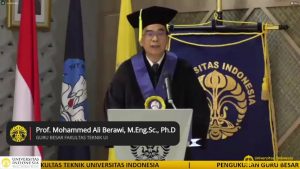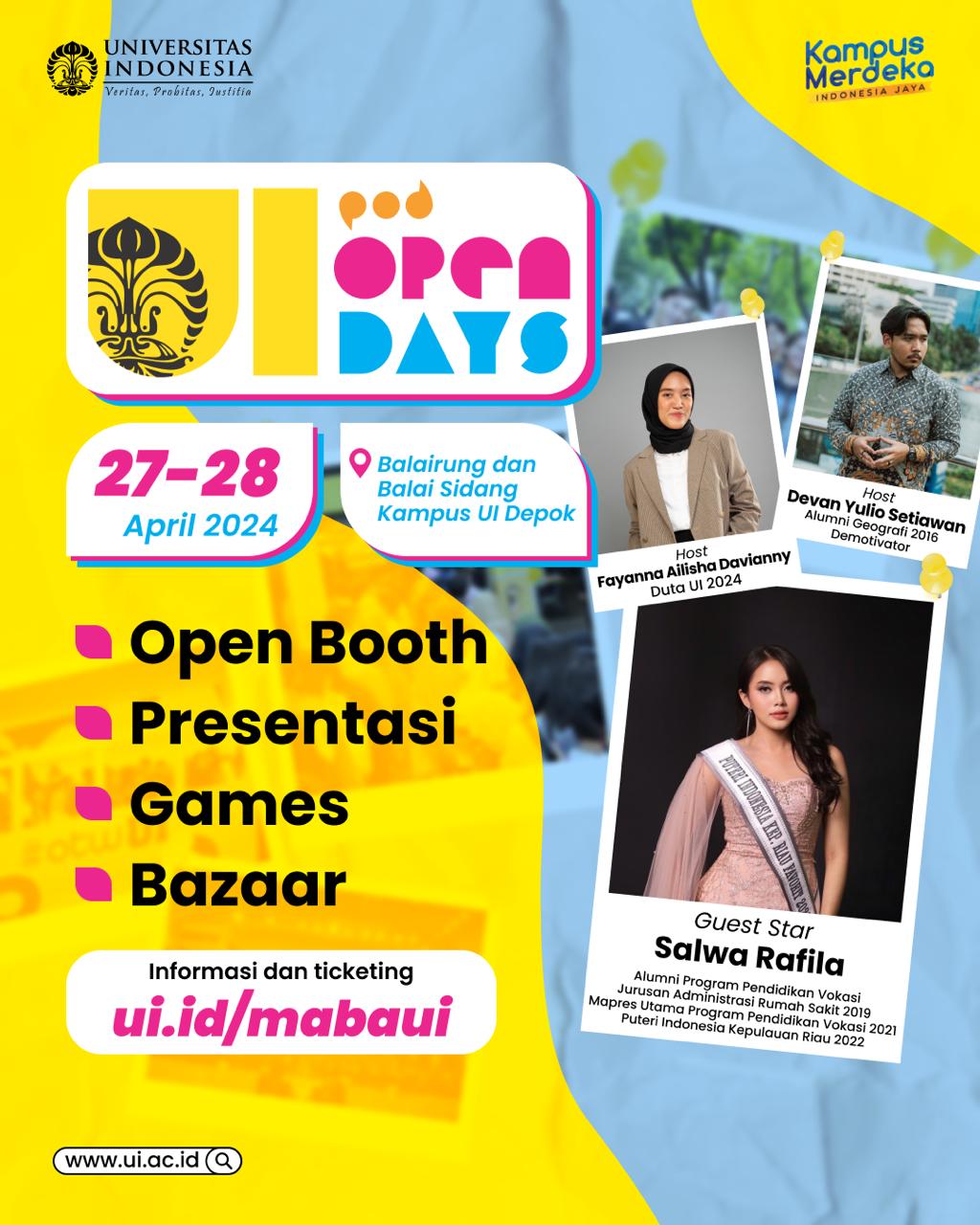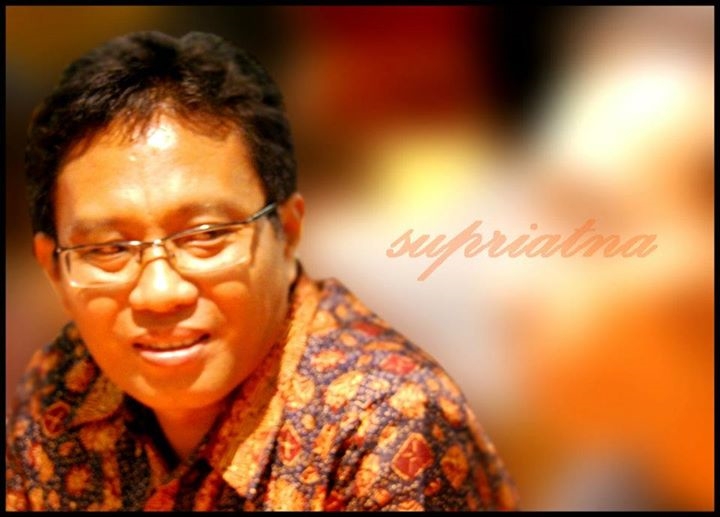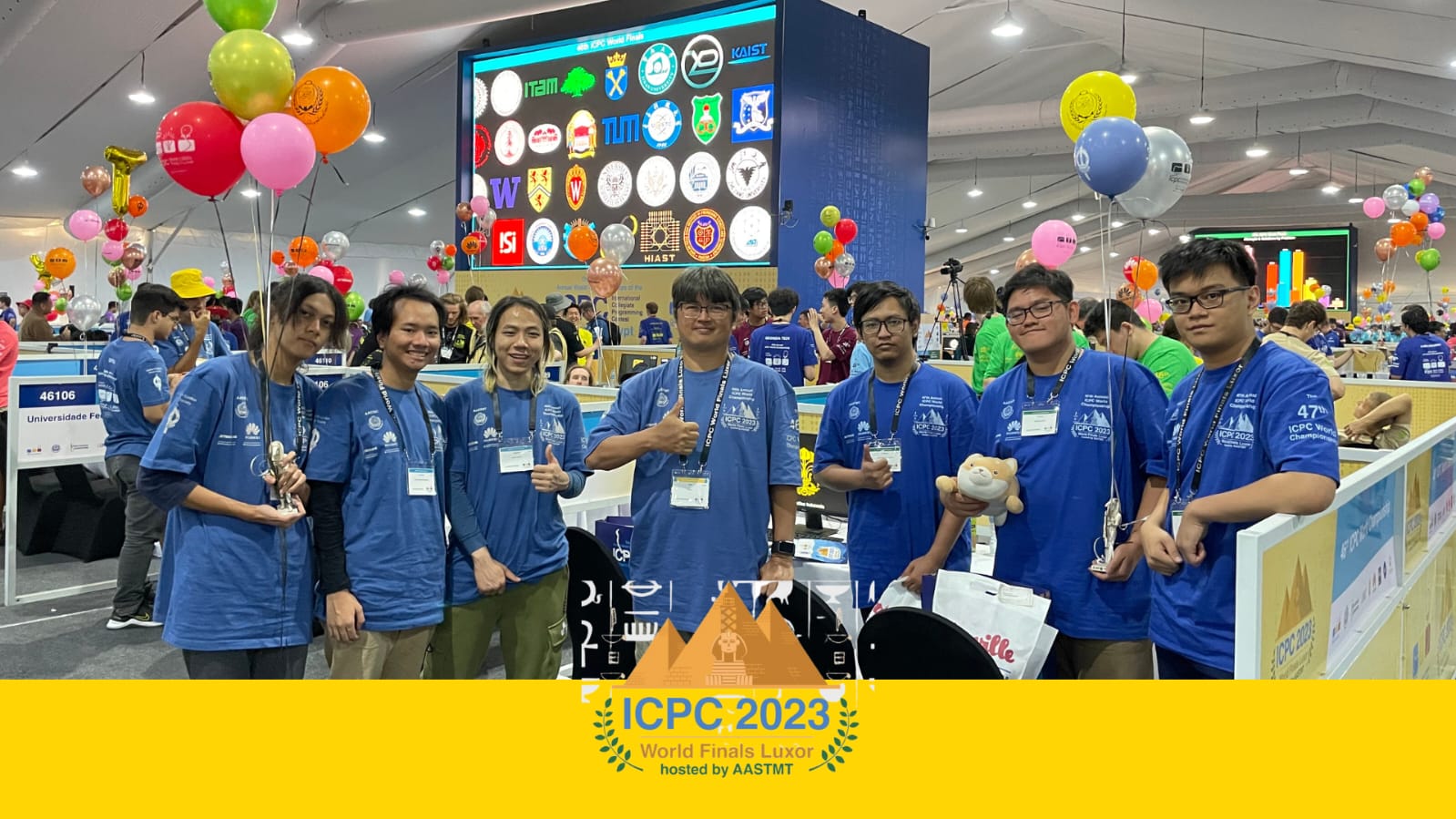
Saturday (26/3) saw the initiation of several new UI professors. One of them, Prof. Mohammed Ali Berawi, M.Eng.Sc., Ph.D., delivered a talk on four topics related to current developments in the state of infrastructure in Indonesia.
The first is the importance of value-added infrastructure construction planning in increasing project feasibility. Prof. Ali Berawi has conducted studies and research on several feasible infrastructure projects, among which are the implementation of Public Railways and Stormwater Infrastructur (PRASTI) Tunnels in Indonesia, a bridge spanning the Sunda Strait separating the isles of Sumatra and Java, and a smart city design for Ibu Kota Nusantara (IKN), Indonesia’s new planned capital currently under construction.

PRASTI tunnels integrate underground railway tunnels with stormwater diversion channels, thus functioning both as a medium of traffic and commerce on one hand, and as “social infrastructure” capable of flood control. PRASTI achieves this by integrating three structures into one tunnel: public transport facilities, airport-bound railways, and stormwater drainage channels. “Our various researches on infrastructure projects have demonstrated that by generating values added in infrastructure construction, the increased income of other integrated construction sector-type concessions can increase the feasibility of [the aforesaid] projects, so that more optimal benefits will be accrued from development. The efficiency and effectiveness of the funding and creation of the values added of projects must therefore be the basis of infrastructure construction planning, in order to optimise the availability and limitations in infrastructure funding in Indonesia.”
IKN’s smart city design aims towards a resilient and sustainable city, one which is equipped with better municipal services, ranging from improvements in transport, water supply, waste disposal, to healthcare. According to Prof. Ali Berawi, smart cities, by conception, contribute to the formation of a high–quality, healthy, and regenerative constructed environment modelled on circular economy, and with a positive overall impact on the environment.
Having completed his first topic, Prof. Ali moved to the second one: how the feasibility of infrastructure construction along with effectiveness and efficiency in infrastructure financing patterns, can be increased through a scheme binding the government and businesses in cooperation. Both parties, according to Prof. Ali, will benefit by working with each other. The government can procure public infrastructure with greater ease, elements of the private sector involved in infrastructure construction is set profit from the proceeds of the projects, and people are to obtain access to better infrastructure without having to feel burdened by the costs.
The third topic of Prof. Ali’s discussion is the consequences of Covid-19 on economic growth and the construction of infrastructure. A shift in work patterns and social interactions during the ‘new normal’ is projected to cause a stagnation in infrastructure projects, and should therefore be properly anticipated in order to maintain financial and cashflow security so that performance, costs, quality, and time taken to complete construction work can be properly overseen. The construction of infrastructure, an important step towards decreasing disparity in society and the post-pandemic recovery of the economy, need to be carried on with consideration to benefit optimisation.
The last topic Prof. Ali discussed on the occassion is the role of digital technology in infrastructure. Technological advances enabled by Industrial Revolution 4.0 will lead towards a new lifestyle adapted towards said technological advances (i.e. “Society 5.0“) and prompt the need of sustaining natural ecosystem (i.e. “Nature 5.0“) while, at the same time, increasing productivity and quality of life. “In the context of the construction and infrastructural sectors, current technological advances offer great potentials in increasing performance in [infrastructural] projects and the productivity of individual workers. Development, however, should be done with environmentally friendly technology and materials, in order to maintain the sustainability of the earth by reducing carbon emissions, [deal with] climate change, and ensure the usage of resources to maintain economic growth, increase societal quality of life, and safeguard the continuity of the environment.”

The inauguration was broadcast live on Universitas Indonesia’s official Youtube channel. Among the guests in attendance were the Minister of State Secretariat Prof. Dr. Pratikno, M.Soc.Sc., former Minister of Communication and Informatics Drs. Rudiantara, member of the Presidential Advisory Council Muhamad Mardiono, Minister of Public Works and Public Housing Dr. Ir. M. Basuki Hadimuljono, M.Sc., Head of the Financial Services Authority (OJK) Prof. Wimboh Santoso, S.E., M.Sc., Ph.D.; Head of the National Capital City (IKN) Authority Dr. Ir. Bambang Susantono, MCP., MSCE., Head of UI Trusteeship Council (MWA UI) UI Saleh Husin, and the former Rector of Universitas Indonesia Prof. Dr. Ir. Muhammad Anis, M.Met.
Prof. Ali currently serves as Executive Director of the Center for Sustainable Infrastructure Development (CSID) Universitas Indonesia, and Director of ASEAN University Network for Sustainable City and Urban Development (AUN-SCUD). He was formerly Editor-in-Chief of Value World, the journal of the Society of American Value Engineers (SAVE International) (2008-2014) and Editor-in-Chief for the Scopus-indexed journal International Journal of Technology (IJTech). He was selected as the most outstanding lecturer/researcher at the University of Indonesia (2009) and was a finalist for the UK Alumni Award (2008) and Toray Science and Technology Award (2014). He has been listed by Webometrics as one of the Top Scientists in Indonesia (2015-2017), Top 500 Indonesian Best Researchers by Ministry of Research and Technology of the Republic of Indonesia (2020), World’s Top 2% scientist by Stanford University (2021) and had his biography featured in the 24th edition of Who’s Who in the World. In 2002, he completed his studies at University Malaya, becoming a Master of Engineering Science, and earned a Ph.D in Value Engineering from Oxford Brookes University, the UK, in 2006.
For more information refer to:



